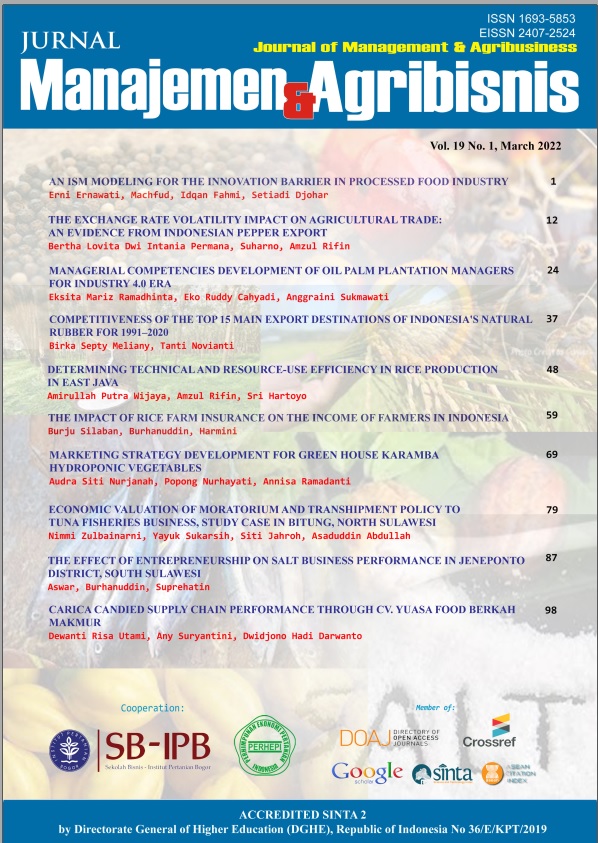Strategy for Knowledge Management Sustainability: A Lesson from The Industrial Automation Unit
Abstract
Organizational knowledge is a combination of individual’s knowledge within the organization. Specialize individual knowledge is developed inside the organization. Therefore, it should belong to the organization and be stored in the organization. The Industrial Automation (IA) department implements simple knowledge management (KM) in the form of a web blog. However, the KM implementation becomes inconsistent. This inconsistency can lead to knowledge loss and knowledge gaps if there are individual changes within the organization. This study aims to analyze the condition of the IA department’s KM, analyze the factors that affect the sustainability of IA’s KM and formulate strategies for the sustainability of IA’s KM. The analysis of KM is carried out with the following factors: culture, training and development, reward, performance system, and technology. Supervisor’s order is still something that can help to build the knowledge-sharing habit. Employees do not get training regularly. Employees feel that they have not received good appreciation for the knowledge sharing and have not been included in the performance appraisal. Technology has been well adopted in KM. SEM-PLS analysis shows that training and development is a significant factor of KM sustainability. SEM-PLS result and content analysis construct managerial implication and KM sustainability strategies formula: develop a yearly training plan, establish problem-solving forum, and improving KMS implementation.
Keywords: content analysis, knowledge management, SEM-PLS, sustainability, training
Authors
Authors who publish with this journal agree to the following terms:
- Authors retain copyright and grant the journal right of first publication with the work simultaneously licensed under a Creative Commons Attribution License that allows others to share the work with an acknowledgement of the work's authorship and initial publication in this journal.
- Authors are able to enter into separate, additional contractual arrangements for the non-exclusive distribution of the journal's published version of the work (e.g., post it to an institutional repository or publish it in a book), with an acknowledgement of its initial publication in this journal.
- Authors are permitted and encouraged to post their work online (e.g., in institutional repositories or on their website) prior to and during the submission process, as it can lead to productive exchanges, as well as earlier and greater citation of published work (See The Effect of Open Access).

